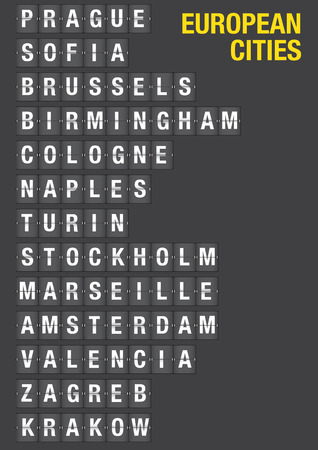1. Understanding the British Countryside Code
If you’re heading out for a wild camp in the UK, grasping the British Countryside Code is non-negotiable. This isn’t just a set of polite suggestions – it’s a blend of legal requirements and ethical standards that underpin your right to roam responsibly. The Code sets clear expectations for handling rubbish: what you bring in, you must take out. Under British law, leaving litter is an offence; fines and penalties are enforced to protect landscapes from careless campers. Ethically, the countryside belongs to everyone – farmers, wildlife, fellow hikers, and future generations all depend on us keeping these spaces pristine. Respecting these guidelines preserves not only natural beauty but also public access for wild camping. Ignoring them can lead to land closures and stricter regulations. By packing out all waste, minimising your impact, and leaving no trace, you’re upholding both the letter and spirit of outdoor ethics in Britain’s wild places.
Essential Gear for Packing Out Rubbish
When wild camping across Britain’s varied landscapes, the weather can turn on a sixpence, and so can your plans for managing waste. Packing out rubbish is non-negotiable if you want to respect the countryside code and keep our wild spaces pristine. Having the right kit is half the battle—each item serves a purpose in keeping your litter contained, your hands clean, and your conscience clear.
Kit List Breakdown
| Item | Purpose | British Camping Tip |
|---|---|---|
| Heavy-duty bin bags | Main containment for all waste; robust enough for brambles and rough ground | Opt for black sacks to avoid attracting wildlife; double-bag if rain threatens |
| Dry sacks or roll-top bags | Waterproofing waste, especially used food packaging or anything with residue | Use bright colours so you don’t leave them behind in low light or foggy conditions |
| Nitrile gloves | Hygienic handling of dirty or sharp waste items | Always have a spare pair—gloves get lost or torn easily on the fells |
| Pocket trowel (optional) | Burying biodegradable waste where appropriate—always 30cm deep and away from water sources | Not all sites permit burying waste; check local guidelines first |
| Zip-lock bags or small containers | Segregating recyclables or hazardous bits (batteries, gas canisters) | Label bags clearly to avoid confusion at home or recycling points |
| A spare carrier bag or two | Mop up unplanned litter found along the way—leave no trace extends beyond your own camp! | Some National Parks encourage ‘pick-up-a-bag’ schemes—get involved locally when possible |
The British Weather Factor
No kit list would be complete without considering our famously unpredictable climate. Dry sacks are a must to keep rubbish from leaking into your rucksack during a downpour. If wind picks up on exposed moorland, ensure bags are tied off securely—nothing blows further than an empty crisp packet across Dartmoor. Gloves help when things get muddy, especially after a night of rain has turned footpaths to slurry.
A Few Hard-Won Tips:
- Knot your bin bags tightly before packing away.
- Categorise waste as you go—don’t wait until you’re back at the car park.
- If space allows, stash an extra bag for other people’s litter—it’s common courtesy in the hills.
The Bottom Line:
With the right gear and mindset, there’s no excuse for leaving even a scrap behind. Equip yourself as you would for any essential survival task: methodically and with pride in doing things properly—the British way.

3. Smart Strategies to Reduce Waste
When wild camping across the UK, every bit of rubbish you avoid bringing is one less thing to carry out. The key to a low-impact camp is preparation and choosing kit that keeps your load—and the landscape—clean. Here’s how seasoned wild campers tackle waste reduction from the get-go.
Minimise Packaging Before You Leave
Start at home by stripping away excess packaging. Transfer food into lightweight, reusable containers or resealable bags. Ditch supermarket wrappers and unnecessary boxes, and portion out exactly what you’ll eat. This not only slims your pack but prevents micro-litter like crisp packets or clingfilm from blowing away in the wind.
Repack Food for Efficiency
Bulk buying or preparing meals in advance? Decant them into reusable silicone bags, sturdy tubs, or beeswax wraps—British-made options abound. For items like porridge oats, trail mix, or tea bags, opt for one container rather than multiple small sachets. This streamlines your kit and keeps wildlife safe from stray bits of plastic or foil.
Invest in Reusable Gear
Avoid single-use cutlery, plates, and water bottles. Instead, choose hard-wearing gear: titanium sporks, enamel mugs, collapsible bowls, and stainless steel flasks are popular among UK wild campers for good reason—they’ll last years and reduce your rubbish pile to almost nothing. For cleaning up, bring a cloth instead of disposable wipes; it dries fast and does the job without leaving a trace.
Choose Sustainable Brands
If you need new kit, go British where possible—many UK brands now offer eco-friendly packaging or take-back schemes for used products. Supporting these companies means less waste on both ends of your adventure.
Keep It Simple
The best advice? Only take what you need. Every extra item is more to manage on the hill—and more potential litter if you’re not careful. With a streamlined approach and a focus on reusables, you’ll leave wild places as unspoilt as you found them.
4. Handling Human Waste Responsibly
When wild camping across the British countryside, responsible management of human waste is crucial for keeping the environment pristine and reducing negative impacts on local flora and fauna. Unlike in some remote wilderness areas abroad, many UK wild camping spots are within sensitive ecosystems or near water sources. The principle is simple: leave no trace, including all evidence of your bodily functions.
Wag Bags and Portable Toilets
The best practice for most wild campers in Britain is to use wag bags or similar portable toilet systems. These kits contain absorbent chemicals and sturdy bags, allowing you to pack out all waste hygienically. They’re lightweight, odour-sealed, and acceptable for disposal in general waste bins after your trip. Using a wag bag eliminates contamination risk and ensures you meet the ‘leave no trace’ ethos expected on British land.
When to Dig a Cathole
In certain situations, such as multi-day hikes through remote Scottish glens or upland moors where carrying out waste isn’t feasible, digging a cathole may be permissible. However, this method must be used with extreme care and only where local guidelines allow it. Never dig catholes on farmland, near rivers, lakes, or paths frequently walked by others.
| Method | Where Permitted | Instructions |
|---|---|---|
| Wag Bag/Portable Toilet | Everywhere (Preferred) | Use for all solid waste; seal and dispose in general waste bins off-site. |
| Cathole | Remote uplands (if allowed) | Dig 15-20cm deep, at least 50m from water/campsites/paths; cover thoroughly after use. |
Best Practice Checklist
- Always check local restrictions before wild camping—some areas strictly prohibit any form of toileting except pack-out solutions.
- If using a cathole, bring a lightweight trowel and biodegradable toilet paper. Pack out wipes and sanitary products as these do not decompose quickly in UK soils.
- Never burn or bury wet wipes or feminine hygiene items—they attract wildlife and can pollute watercourses.
By managing human waste responsibly—preferably packing it out—you’ll help preserve Britain’s wild places for future generations of adventurers. It’s not glamorous work, but true outdoor grit means leaving nothing behind—not even a trace.
5. Dealing with Rubbish in Challenging Conditions
When wild camping across the diverse British landscape, from windswept moorlands to sodden woodlands and snowy uplands, keeping your rubbish under control can test even the most seasoned camper. Adverse weather and curious wildlife or livestock—like foxes, badgers, sheep, or ponies—can turn a simple bag of waste into a major issue if you’re not prepared. Here’s how to keep things squared away when Mother Nature and local fauna are working against you.
Storing Rubbish Securely: Wet Weather and Wind
British weather is famously unpredictable. Invest in heavy-duty, sealable bags—think thick rubble sacks or dry bags that won’t easily tear or leak. Double-bagging is wise when rain threatens. Always squeeze out excess air before sealing bags; this prevents wind from inflating them like balloons and causing litter to scatter across the fells. Secure your rubbish bag inside your rucksack or weigh it down with gear when setting up camp to stop it blowing away during sudden gusts.
Snow and Freezing Temperatures
In snow, rubbish can freeze solid and bags become brittle. Use insulated stuff sacks or wrap waste in spare clothing to prevent freezing and tearing. Mark where you store your rubbish if you leave it outside (for example, under your tarp), as fresh snowfall can hide even the brightest bin liner. Always check that nothing is left behind by doing a thorough sweep of your pitch before leaving.
Keeping Wildlife and Livestock Out
Britain’s wild campers share the land with inquisitive animals. Foxes and badgers have a nose for food waste, while sheep and ponies will happily rummage through unattended bags. Store all waste inside your tent porch or hang it from a sturdy tree branch using cordage if possible—well above ground level but out of sight from passing animals. Never leave bags outside overnight unless absolutely necessary, and avoid strong-smelling foods which attract unwanted attention.
Top Hard-Nosed Survival Tips
- Use odour-proof liners if you expect problems with animals.
- Tie knots that can withstand both brute force and British rain: a double fisherman’s knot works well for securing bags to branches or fence posts.
- If livestock are present, never stash rubbish near field boundaries; sheep will find it faster than you think.
Remember:
Your wild camp should be invisible once you’ve gone—rubbish managed properly means no trace left behind, regardless of what the weather throws at you or who comes sniffing around in the night.
6. Disposal Points and Recycling in the UK
Once you’ve packed out your waste from the wilds, proper disposal is the final step to keeping Britain’s countryside pristine. In the UK, access to bins and recycling points varies depending on where you end your trip, so knowing what to expect – and where to look – is essential for responsible wild campers.
Finding Bins in Towns and Villages
Most British towns and villages provide public litter bins along high streets, near car parks, and at public spaces such as parks or village greens. However, these bins can fill up quickly during busy weekends or bank holidays, so always check that there’s space before adding your rubbish. Never leave bags beside overflowing bins – this attracts wildlife and creates an eyesore for locals. If no suitable bin is available, take your waste home or seek out a larger disposal point.
Recycling Facilities
The UK takes recycling seriously, with many local councils offering clearly marked recycling bins for plastics, glass, paper, and cans. These are often found at supermarket car parks, community centres, or council-run recycling centres. Separate your rubbish as you go during your trip to make sorting easier when you return to civilisation – this is especially important for materials like aluminium cans or plastic bottles that are widely recycled across Britain.
Motorway Service Stations
If you’re driving home after your wild camp, motorway service stations are a reliable fallback. Most have general waste bins as well as mixed-recycling points near entrances and petrol forecourts. These facilities are designed to handle large volumes of traveller waste but remember: don’t dump bulky camping gear or hazardous materials here – only standard rubbish and recyclables.
Tips for Responsible Disposal
1. Research in advance: Before heading out, know where your nearest recycling centre or public bin will be on your route home.
2. Be prepared to pack it home: Sometimes facilities are full or unavailable – always have a plan B.
3. Sort as you go: Use separate bags for recyclables and general waste.
4. Respect local rules: Some rural areas have stricter guidelines on litter and fly-tipping; follow signage and council advice.
By taking responsibility for your rubbish all the way back to an appropriate disposal point, you help keep Britain’s wild places beautiful for everyone who follows in your footsteps.
7. Setting an Example: Leave No Trace Advocacy
If you’re wild camping in the UK, you’re not just a visitor – you’re a steward of the land. Your actions set the bar for others and can inspire a culture of respect and responsibility. Here’s how to become an advocate for Leave No Trace ethics and encourage others to follow suit.
Lead by Example
Always pack out every scrap of rubbish, even if it isn’t yours. If you spot litter, bag it up and take it with you. Fellow campers, hikers, or locals often notice these acts; your diligence becomes contagious. Share your commitment openly but humbly – a simple comment like “I always carry a bin bag for extra litter” can nudge others towards better habits.
Educate and Engage
Start conversations about responsible camping, especially with newcomers or younger adventurers. Explain why glass bottles, wet wipes, and food wrappers don’t belong in nature. Offer tips on lightweight rubbish bags or reusable containers suited to British weather and terrain. Sometimes, people simply need practical guidance.
Report Litter Responsibly
If you encounter large fly-tipped items or dangerous waste (like gas canisters), report them through local council websites or apps such as FixMyStreet. In national parks or popular wild camping areas, rangers and wardens appreciate accurate information; flagging issues helps keep sites clean for everyone.
Join Community Clean-Ups
Many British outdoor groups organise regular clean-up events across moorland, woodland, and coastal wild camping spots. Search social media for #LitterPick or check with local ramblers’ associations. Getting involved not only makes an immediate impact but also builds connections with like-minded people who value the countryside.
Be a Voice for Change
Share your positive actions on platforms like Instagram or Facebook, using hashtags such as #LeaveNoTraceUK. Tagging relevant authorities or organisations amplifies the message and encourages wider participation. Remember: advocacy is less about preaching, more about inspiring collective pride in Britain’s wild places.
By setting an example, reporting problems, and joining community efforts, you help ensure our wild camps remain pristine for generations to come. Respecting the land is everyone’s responsibility – lead from the front, and others will follow.


